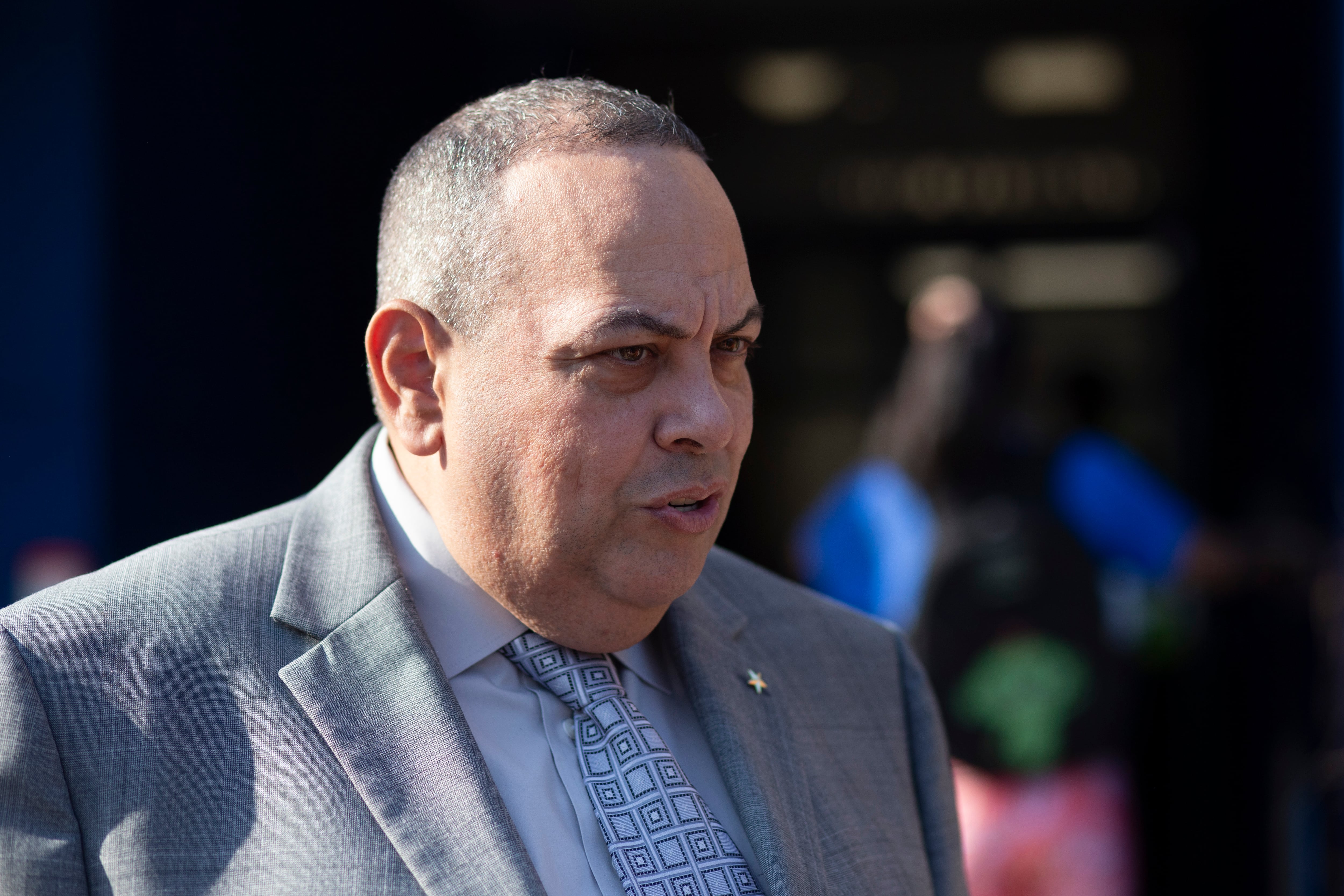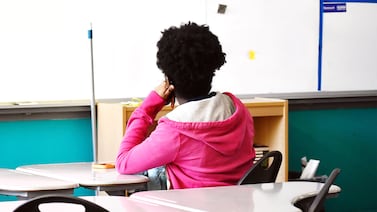Sign up for Chalkbeat Newark’s free newsletter to keep up with the city’s public school system.
Newark Public Schools' “Staff Fun Day” turned out to be a headache for the district, after a state investigation revealed the $44,000 festival violated laws on how school boards can spend taxpayer money.
The New Jersey Department of Education’s investigative unit audited the Newark Board of Education and found it inappropriately spent about $33,650 in state aid when it hosted an outdoor party for central office administrators, staff, and their children in June that included a DJ, four inflatable carnival booths, a rescue squad, and a police officer.
As a consequence, a resolution passed by the school board Tuesday night requires the district to return that aid to state coffers — potentially leaving a hole in the district’s budget, of which more than 82% is funded by state aid.
State laws stipulate that district-sponsored activity must “clearly align with the district’s goals and objectives, particularly in relation to the use of public funds,” states a letter sent to Superintendent Roger León on Oct. 25 from Jamar E. Purnsley, director of the state Office of Fiscal Accountability and Compliance. That division within the state’s education department conducts investigations of school districts, often prompted by an external complaint or by a directive from the education commissioner.
In this case, the investigation was prompted after news articles published in June highlighted the $44,000 price tag for the event, school board secretary and business administrator Valerie Wilson said at the school board meeting on Tuesday.
Held at the Forest Lodge in Warren, a 40-acre wedding venue about 24 miles southwest of Newark, the event was billed as the Central Office Staff Fun Day and took place June 1. The $43,813.90 cost for the event covered, among other features, breakfast and lunch buffets for 275 adults, who are employees of the district’s central office, and their children, approximately 140 of whom were accounted for in the invoice.
Weeks after the event, Board President Hasani Council said at a school board meeting that a “majority” of the children in attendance were students in the district and clarified that no alcoholic beverages were served, even though the invoice included bar service for beer on tap.
Tap INTO Newark was the first to report on the invoice from the venue that the school board approved at its May meeting.
The district argued to the state’s auditors that the event supported its strategic plan’s third priority: “strength-based and responsive culture,” which is to “communicate a shared vision and plan for developing, supporting, and sustaining positive culture and climate” across schools and departments.
The letter from the state’s education department noted that the district “contended that the Fun Day event was intended to promote team building.”
But, while state auditors acknowledged the activities “fostered camaraderie,” it determined the event violated three statutes related to the use of public funds, including provisions that define training events, seminars, and retreats.
Among the activities listed in the “fun day” agenda were team basketball and volleyball, an egg toss competition, free throw contests, corn hole, inflatable axe throwing, a scavenger hunt, limbo competition, and a hula hoop contest, which were all facilitated by the venue’s employees. The 415 guests also had access to a rock wall and bungee activity, arcade games, social media photo booth with prints, and caricature artists.
The auditors identified four critical points in its investigation: a lack of educational or professional development content, an absence of Newark Public Schools’ leadership-led facilitation, a lack of formal sessions to discuss the district’s strategic initiatives, and a lack of alignment with state code that requires specific organizational goals for events funded with taxpayer money.
Board approves refund, but not admission of a violation
In the resolution the board approved on Tuesday, it certified directing a refund back to the state and approved the corrective action plan.
The investigation determined that 76.8% of state aid, or $33,649.07, covered the total event cost. The district is directed to return that amount to the state’s education department, the letter states.
The corrective action plan included a public discussion of the audit findings, which the board engaged in on Tuesday night, and ensuring that future events align with statutory requirements and district goals. The district is also required to post that document on its website, which it did on Wednesday.
Though it approved the requirements outlined in the audit, school board attorney Brenda Liss said that the district still does not admit any violation occurred and disagrees with the finding.
“The OFAC finding is not the be all and end all,” Liss said. “I continue to believe and continue to advise this board that I disagree with that finding. But I also made the recommendation that it is not worth pursuing any further.”
Since the corrective action plan wasn’t onerous, Liss said she advised the board to agree to it without admitting they violated state code.
Board member Crystal Williams asked, “If the state says that there was a violation, does it matter that we don’t admit it or not?” But Liss insisted that the board refrain from admitting any violation.
Wilson, the board secretary and business administrator, said the payment to the state hadn’t been made as of Tuesday night.
The $30,000-plus fine is a fraction of the $1.5 billion district budget. But, in a district that has been historically underfunded with rising expenses as this school year marks the near-end of federal COVID relief funding, the cost could affect students and staff.
When asked how the district will address the hole that will be left in its budget after returning those funds, Communication Director Paul Brubaker said in an email on Wednesday that “the district will make the necessary reallocation of funds to address this matter without compromising the academic program.”
This school year, the district received $1.25 billion in state aid, a record high and the first time the state fulfilled its part on the school funding formula. Still, district leaders earlier this year said the district remained $112 million under its local fair share of property taxes.
The hefty fine didn’t stop the Newark superintendent from expressing gratitude for the state auditor’s office at the board meeting Tuesday night, ahead of the vote to approve the resolution. León said the district would be planning another “fun day” this school year.
“We appreciate the team from OFAC because what they in fact did was provide us with guidance on how we can actually have ‘fun day’ this year — what they would expect on our selection of a number of activities,” León said. “We’re actually thankful to them.”
Catherine Carrera is the bureau chief for Chalkbeat Newark. Contact Catherine at ccarrera@chalkbeat.org.







